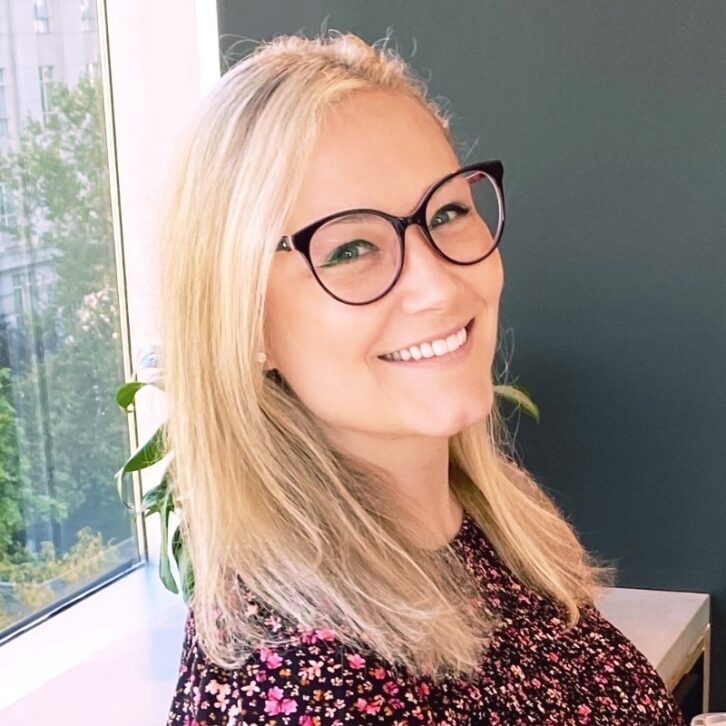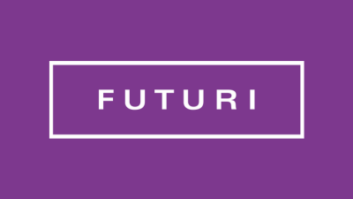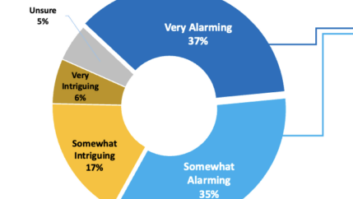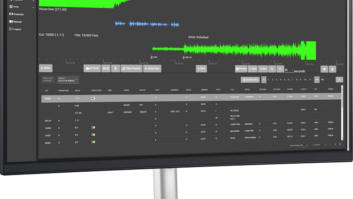Being first at anything important usually carries risk, which is why Alpha Media is still taking baby steps when it comes to crafting a long-term strategy for using AI and synthetic voices on air.
The company’s CHR station KBFF(FM) in Portland, Ore., jumped to the cutting edge of broadcast as being the first in the United States (at least publicly) to deploy a radio voice created by AI, using RadioGPT technology from Futuri Media. In June the company began using a cloned voice of midday personality Ashley Elzinga, dubbed AI Ashley, to handle at least some of the midday duties on “Live 95.5.”
In August we checked in with Alpha for an update. The company is not using AI Ashley on a daily basis. The synthetic voice is deployed in limited circumstances, according to Content Director Dylan Salisbury — for instance if Elzinga’s internet goes down and she is unable to voice-track her show, or if she goes on vacation, “or for a very timely local break.”

Elzinga is based in northern Michigan and also hosts mornings on WKHQ(FM) in Traverse City, Mich., and nights on KQMV(FM) in Seattle.
Alpha Media says it has been transparent about the use of generative AI and a synthetic voice; it says it has adopted a hybrid approach to using the technology.
The company says its aim is not to replace Elzinga with AI Ashley but rather extend her brand. KBFF’s midday show features mostly voice-tracks created by Elzinga (who goes by Ashley Z on the air) and occasionally the synthetic voice. Both identify themselves on air to make it clear to the listener.
The tool does not have free rein. AI Ashley is all text to voice, Salisbury says. “As of right now, everything that you hear her say is what I write. As you can imagine, that takes a lot of time. You need to come up with the copy, and usually a rewrite or two. Then generate. Usually followed by another handful of re-generates due to mispronunciation or weird inflection. Then download. Then open in Adobe Audition software, edit it then dub into Wide Orbit. We are finding a single five-hour show can take nearly two hours to produce.”
But AI Ashley is at a point where Salisbury can set up prompts through Futuri’s RadioGPT that auto-generate breaks, he said. “The problem with this is, much like ChatGPT, it isn’t up to date with the latest in news and entertainment, so all the artist info you get is typically a year or two old,” he said.
Eventually, Alpha plans to bolster AI Ashley with Futuri’s predictive AI platform TopicPulse. That tool scans for hot topics on social media that will be used to create talking points for the synthetic personality.
Feedback on social media to the June launch of AI Ashley was sour, with many users posting negative reviews of on-air AI.
[“Social Media Reacts to KBFF’s ‘AI Ashley’”]
Broadcast industry comment has been guarded. Most major radio groups are not openly commenting on Alpha’s use of an AI jock. iHeartMedia CEO Bob Pittman has cautioned against the use of AI on-air in place of human talent, yet he also has said that iHeart plans to use AI “to its fullest” and that doing so could “fundamentally change the cost structure of the company.”

In the weeks since the launch of the cloned voice on KBFF, Alpha executives have had time to further contemplate the significance of the moment and appear more resolute than ever that using AI in certain situations will present long-term benefits for radio operators.
Meanwhile, the AI tool has been the subject of TV reports and newspaper stories, all examining the ethical implications of using synthetic voice in place of human voices in broadcast and any potential risk.
Ratings eventually will tell if a station’s listeners buy the concept, observers say.
Portland is radio market No. 21. According to Nielsen top-line data based on PPM, KBFF for both June and July had a 3.0 AQH share with persons 6+, Mon-Sun 6 a.m. to midnight. That places the music station 15th overall in the market.
“Very additive”
Phil Becker, executive VP of content at Alpha Media, said, “Our early takeaways on the launch of AI Ashley have been incredibly promising. We have more timely and local content; we can move with immediacy formerly not available, and we find it very additive to what we do.”
In an email exchange, Radio World asked Becker about the effectiveness so far of AI Ashley, whether Alpha is considering using the technology on more of its stations and how he answers naysayers on social media:
Radio World: How do you respond to the objections that have been raised?
Phil Becker: Social media has an echo chamber effect, where like-minded individuals often reinforce each other’s opinions, leading to a skewed perception of the actual reception. The silent majority, who are content or have positive experiences with AI Ashley, may not feel compelled to speak up on social media.
I am grateful to see the radio industry in the conversation again at the public dinner table. If AI Ashley has evoked an emotion that reinvigorated radio for even a moment, that’s a positive.
RW: Is the company collecting feedback from listeners or conducting focus groups to help make determinations going forward?
Becker: As the famous Steve Jobs quote says, “People don’t know what they want until you show it to them.” Now that AI Ashley is on the station, we can discuss this accurately with focus groups and others.
RW: Why launch AI Ashley in the first place? Do you think it will improve ratings and bring in listeners?
Becker: With the growing popularity of AI-driven content, we saw an opportunity to differentiate ourselves and maintain a competitive edge by introducing AI Ashley to KBFF.
While the introduction of AI Ashley has the potential to improve ratings and bring in new listeners, its success depends on the core fundamentals of all programming decisions, including execution, the viability of the content, building brand awareness and so on. On one of my recent podcasts I delve into artificial intelligence and its impact on the radio and media industry.
RW: Portland is a PPM market; what is the ratings impact so far?
Becker: (In late July) we received our first rating period with AI Ashley at the helm, and we hit an 18-month high for her daypart. While this is too small of a sample size to qualify as a success, it is a wonderful start.
We also saw our stream starts increase dramatically upon AI Ashley’s arrival. So thus far, we are pleased with the early results.
RW: You said you’re being transparent about its use on air. What are you telling listeners?
Becker: The AI Ashley always identifies herself as such. Because it’s the right thing to do.
RW: Futuri says it has AI products that can do other jobs around the station, like writing copy and production. Is Alpha using it for those applications yet, or is it considering doing so?
Becker: We are aware of those products but are currently not using any AI software beyond RadioGPT. We are open-minded to what else might be offered, but we’d need to learn more about the products.
RW: Have you or would you consider using cloned voices on other Alpha stations?
Becker: We have yet to discuss expanding beyond one station in one market on one daypart.
[Read More Radio World Stories About Artificial Intelligence]












